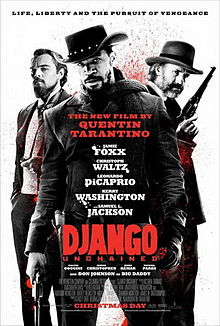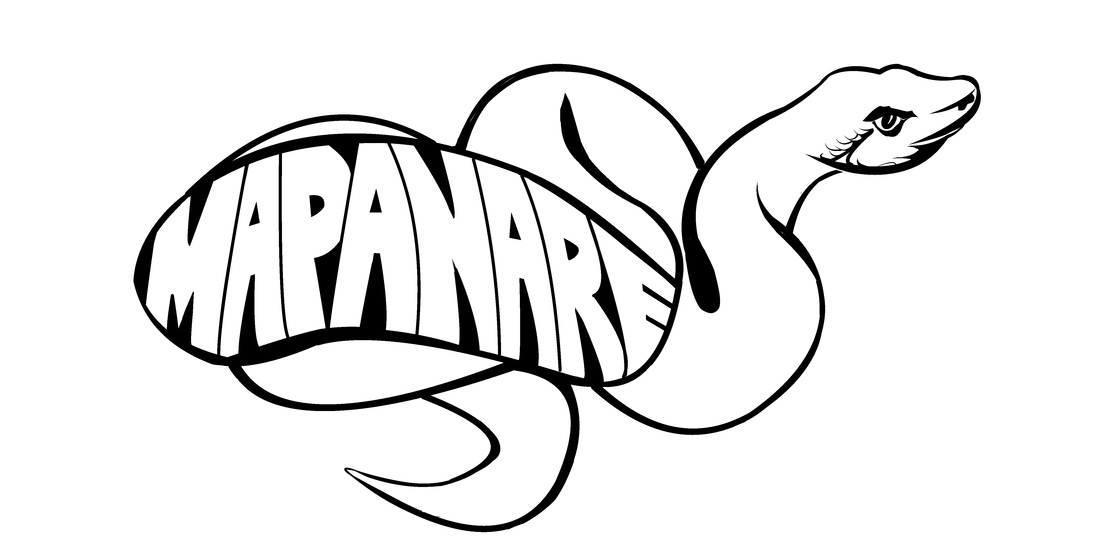
Django Unchained does the same for the historic crime of slavery. Guess what? There is lots of blood and brutality mixed with humor. This is a film in the upper echelon of Tarantino's work--even comparing favorably to films like Pulp Fiction and Jackie Brown.
Of course, in slavery, there is no ONE person (like Hitler) that you can focus all your rage on. So? You create a loathsome, sadistic plantation owner, Calvin Candie.
Candie, not only an evil character but one with bad teeth. Both of these are novel in the career of Leonardo DiCaprio--an unattractive character both physically and morally. There is nothing to like about DiCaprio's Candie. Of course this character is writ large and broad and requires some serious scenery chewing which DiCaprio does with gusto.
To face Candie's evil we have two protagonists--Dr. King Schultz and Django. The former is a former German dentist turned bounty hunter and the later a slave being sold. Schultz needs Django to identify men he is chasing and Django needs his freedom to rescue his wife. Christoph Waltz turns in a performance every bit as memorable as his Oscar winning role as Colonel Hans Landa. Jamie Foxx turns in a performance worthy of any Western. He is John Wayne, Gary Cooper and Clint Eastwood all rolled into one.
Guess who winds up in possession of his wife? Yes! Calvin Candie! And also Django's wife speaks German and is named Broomhilda.
One really interesting choice in the film is the REAL villain--Samuel L. Jackson's Stephen, the head house "nigger" (If you have a strong aversion to the "N-word" this isn't the film for you). It is a peculiar choice for a villain. Generally, a black character isn't going to be the villain of a slavery film (after Birth of a Nation anyway) but Tarantino creates Stephen, a character somehow more evil than Candie in that he works against his own kind. Django plays at being a black slaver but Stephan is really complicit in the oppression of his own people. He is a cog in the machine of slavery. He is Judas, worse than Judas.
This film may slow down a wee bit here and there but, rest assured, these lulls (and they are brief) are punctuated with unexpected violence or humor. This film flows far better than Inglourious Basterds and it combines all the best of Tarantino's past work. Tarantino nods to film history here and there. You always get the impression in his better films that every detail is in a greater context and this is certainly true in Django Unchained. These roots, this context, is emphatically not in history but in film history. In a way Tarantino 's film isn't about righting the wrongs of slavery but about righting the wrongs of how slavery has been depicted in film--from the earliest American "epic" to the happy, sassy, slaves of subsequent films.
Hopefully this isn't the final rewriting of this history. Django II anyone?


 RSS Feed
RSS Feed